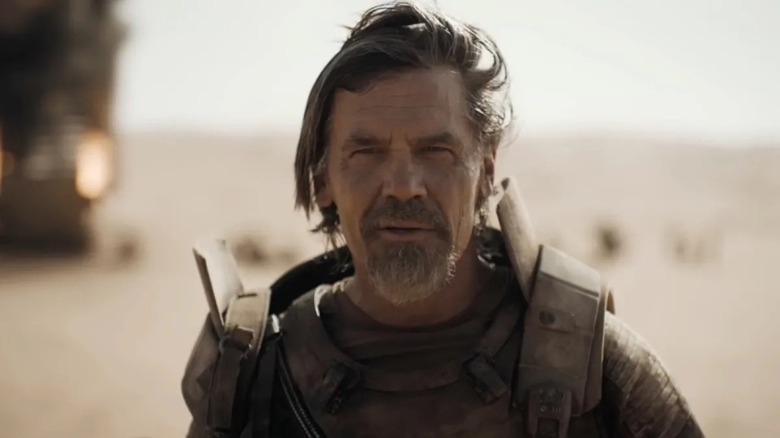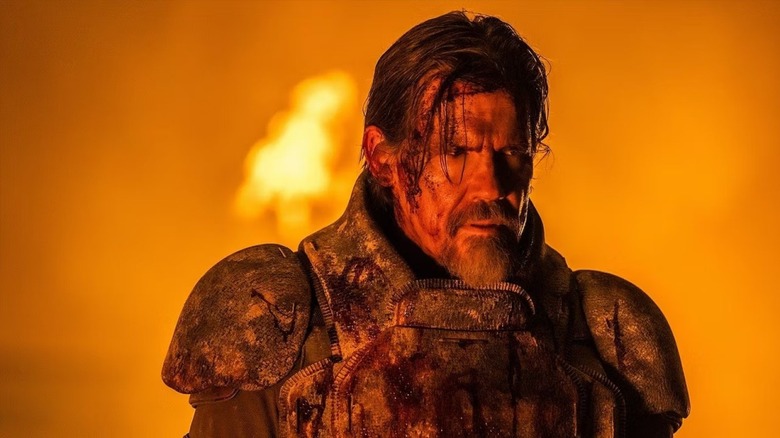Josh Brolin & Denis Villeneuve Clashed Over Dune 2's F-Bomb
"Dune" is an interesting science-fiction world because it is extremely fantastical in many places, like the Spice Guild's mutant navigators, the anti-gravity attack of "Dune: Part Two," everything about the giant worms, and of course, "God Emperor of Dune," a story so bizarre only a cartoon has dared adapt it. And yet, it is also a world that is clearly meant to be based in our universe. In the books, the Atraides trace their line back to ancient Greece, and Paul reads from a book that talks about Earth, or Old Terra, the planet thought to be where humanity originated. Paul even compares himself to Genghis Khan and Hitler at one point.
The line between the fantastical and the grounded is rather thin in "Dune," and in Denis Villeneuve's adaptations we almost got some very specific and contemporary Canadian lingo make its way to Arrakis. As Josh Brolin told Collider, during a scene in "Dune: Part Two" where his character Gurney sees a spice harvester explode, he curses out the film's only F-bomb, but that's not what Denis Villeneuve originally wanted. "Denis kept saying, 'Say Tabarnak,'" Brolin said, referring to a French-Canadian island term meant to express frustration or surprise, not unlike an f-bomb. "I was like, 'But nobody's gonna know what I'm talking about. Isn't that gonna take them out of the movie?' And he said, 'No, it's great. In Canada, that's a huge thing.'"
Broling doubled down, arguing that outside of Canada, no one was going to understand what the word meant. "I tried it — they have it on film — and it sounds super bad," he continued. "Then he finally came up to me at the end, and he goes, 'Just say, f**k.' And that's what ended up there."
Why language is important in Dune
Language is very important in Frank Herbert's "Dune" series. Despite the story being set tens of thousands of years in the future when language has evolved and changed, it is still firmly set in our world, with the Fremen being coded as being Middle Eastern and North African and many phrases and integral aspects of their culture deriving from Arabic language and culture.
Unfortunately, the movie version mostly ignores this, with controversial results. Sure, there are a couple of Arabic phrases used, but the movie all but ignores its real-world inspiration by largely giving the Fremen a fake futuristic language that feels like "just sci-fi s**t," as Zendaya would describe it.
Languages are hugely important. "Lord of the Rings" author J.R.R. Tolkien literally created an entire world out of language, understanding the intricate connection between language and culture and history. Herbert did some of the same, as he specifically added Arabic language to his futuristic world to comment on the world and times he lived in. Using Arabic as an inspiration for the way the Fremen communicate also adds commentary and specificity to "Dune," coding the Arrakis natives as Muslim, exploring how Muslim culture might evolve through the millennia, and how the colonialism and imperialism of Herbert's time would continue even in distant planets in the distant future.

